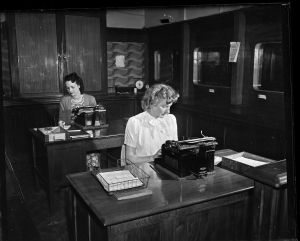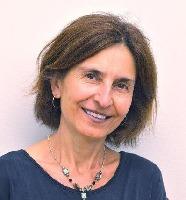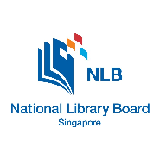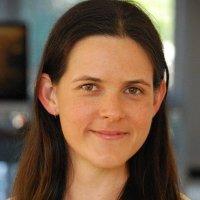Blog
Unless otherwise stated, content is shared under CC-BY-NC Licence
Remembering the Pandemic: Archiving the Present for Future Research
Oya Y. Rieger is Senior Strategist for Ithaka S+R in the USA
Since it began almost 20 months ago, the pandemic has affected nearly every aspect of our lives. Researchers from all around the world have been mobilized to help understand and combat COVID-19 and communicate public health messages about it to a range of audiences. Critical information about COVID-19 has been flowing through various channels, including social media, news outlets, journals, and preprint servers. Early on, many cultural heritage organizations engaged in initiatives to participate in the curation and archiving of a diverse range of information. Given the ephemeral nature of digital information, preservation is not only a matter of considering the access requirements of tomorrow’s users but also taking into consideration the needs of individuals who are currently studying various scientific, sociological, political, and cultural aspects of the pandemic. These archiving efforts will not only help to capture a significant moment in our history but may also contribute to the prevention or management of future outbreaks.
Reporting on RDMF21: Data Stewardship in Research Institutions
Fatima Darries is Deputy Director Cataloguing Division at the University of South Africa (UNISA). She attended RDMF21 with support from the DPC’s Career Development Fund, which is funded by DPC Supporters.
I attended the RDMF21 virtual workshop on Zoom on 12 and 13 July 2021. The workshop, entitled Data Stewardship in Research Institutions, was hosted by the Digital Curation Centre (DCC).
The two, half day workshops focused on institutional data stewardship roles, and how national-level communities of practice can help institutions coordinate them with the theme coordinating support for research data stewardship for generic and disciplinary roles.
I compiled this post from personal notes, collaborative notes, tweets and presenters’ slide decks.
Reflections on Operation Night Watch: the largest research and conservation project of one of Rembrandt’s finest works
Annette le Roux is Collection Developer Archival Resources at the University of South Africa (UNISA). She attended IS&T Archiving 2021 with support from the DPC’s Career Development Fund, which is funded by DPC Supporters.
Annette le Roux is the Collection Developer Archival Resources at the Unisa Library, University of South Africa, with an International Masters in Digital Library Learning (DILL) obtained in 2009. She also completed the Society of American Archivists certificate: Digital Archival Specialist (DAS) in 2019 and the Novice to Know-How: Digital Preservation Skills for Beginners in January 2021.
It was such a privilege to attend the IS&T Archiving 2021 Online conference as a grant recipient of the DPC Career Development Fund. The reason for applying for this grant was worded in my application, mentioning:
The University of South Africa (Unisa), the largest open distance learning institution in Africa, hosts the Unisa Library Digital Collections, including the Unisa Library Archives Online. The urgent digitisation drive of the Unisa Library is closely linked to the following issues:
-
Most archival collections located in the Unisa Library are unique and irreplaceable.
-
Digitisation limits the physical handling of the original records.
-
Digitisation provides access to Unisa’s researchers, as well as to a broad, international user-base.
A focus on… the emerging role of ‘Data Steward’ in Ireland
Dr Deborah Thorpe is Education and Outreach Manager as the Digital Repository of Ireland. This blog is republished from the DRI blog on 4th August 2021.
In DRI’s Repository, you can discover collections of data that range from the Cork LGBT Archive, to the Jacob's Biscuit Factory Archive, to the Irish Women at Work Oral History Project. The Repository preserves, manages and provides sustained access to this social and cultural content for the long-term future. The DRI team also collaborate with our members to showcase this digital content, working on promoting it and encouraging others to cite and reuse it. One element of our work that can cause confusion, though, is the difference between ownership and stewardship of data.
The data that you find in the Repository has a variety of data owners. These are the organisations that are responsible for the data and primarily comprise DRI’s members. As is outlined in the European Commission’s own data governance and data policy, they are the ‘business owners of data assets’, and are accountable for the quality of the assets [1]. DRI is not the data owner for the majority of the data in the Repository, with a number of notable exceptions including our own Publications and the outputs of some DRI-led research projects. Indeed, in order to ingest digital objects into the DRI Repository, an organisation must hold the rights to the data, or must show that it has the necessary permissions to publish the data (see DRI’s Collection Policy). Though DRI supports the open sharing and reuse of data where possible, depositors control the rights statements and licences attached to their digital assets. Digital preservation with DRI does not compromise the position of the data owner: the original creators retain ownership, copyright, and associated intellectual property rights of all digital objects ingested into DRI.
Preserving Our Digital Heritage: National Library Board Singapore
This post was written by the team at the National Library Board, Singapore
The National Library Board, Singapore (NLB) is the official custodian of Singapore's published and documentary heritage, archival materials of national and historical significance, government records and broadcast archives. As part of NLB’s Libraries and Archives Blueprint 2025, which outlines our evolving roles and priorities over the next five years, we are committed to an ongoing effort to collect, preserve, and make accessible digital content on Singapore.
Digital Loans and Virtual Visitors
Carrie Marks is a Digitisation Technician for Still Media at Imperial War Museums (IWM). She attended DCDC 2021 with support from the DPC’s Career Development Fund, which is funded by DPC Supporters.
Hello Everyone! My name is Carrie and I am the Digitisation Technician for Still Media on the Preservation team at Imperial War Museums. I’m currently working on the Digital Futures project which involves digitising images that are at risk of deterioration over the next 5 years.
I wanted to attend DCDC21 as this year’s theme of ‘Collecting in Crisis’ runs parallel with IWM’s focus on collecting during conflict. I wanted to understand how the content I am creating on the Digital Futures project can be used to bring communities together online, develop new opportunities for researchers as well as open up collections for audiences unable to attend museums in person.
The session ‘Digital Loans using Augmented Reality – Would you?’ really caught my attention as I am passionate about preserving collections and I want to find a way to bring the physicality of photographic ephemera to digital users.
DCDC21: Transforming crisis into opportunity within the GLAMA sectors
Shalen Fu is a PhD researcher in Digital Heritage and Impact Studies at King's College London. Shalen attended DCDC 2021 with support from the DPC’s Career Development Fund, which is funded by DPC Supporters.
In 2018, I started my PhD journey at the Department of Digital Humanities, King’s College London (KCL). My research looks at how to best assess the impact of digital museum resources in China. Working with museum partners and the general public, I hope to develop an impact assessment framework that helps Chinese memory institutions better perverse their heritage resources, manage digital collections, and engage the audience.
KCL is one of the associated members of the DPC, which allowed me to participate in the Discovering Collections, Discovering Communities (DCDC) 21 Conference enabled through the DPC Career Development Fund. I would like to express my gratitude to the DPC for providing me with this excellent opportunity to learn from others while reflecting on how my research could best serve memory institutions in the context of uncertainties and changes.
The DCDC 21 Conference was held from 26 June – 2 July, which explored “how crisis can act as a catalyst for change within libraries, archives, museums, and cultural organisations”. The conference covered a wide range of topics from digital heritage preservation, accessible and inclusive catalogues, audience engagement to online teaching. Speakers from varied countries and backgrounds shared their viewpoints on the impact of the pandemic and how we could transform crisis into opportunity. This blog will focus on three talks regarding ‘digital loans’, trauma-informed practices in the GLAMA sectors, and digital game creation.
A long, arduous journey to the starting line
Alexandre Angers is Head of Sector for Long term preservation at the EU Publications Office.
I moved to the Publications Office about a year ago, joining the wonderful long-term preservation team.
This was my first foray into the world of digital archiving. I remember, for lack of a better reference, that in my mind came the image of a ‘time capsule’, probably from watching too many movies or television shows. I knew I was probably off, but had no idea how far off I was. First, of course, is maintenance – digital preservation is more akin to keeping a life form alive and healthy than storing objects away from the inclement weather. But more important, even, is how differently time capsules and digital preservation ‘successfully end’. I put both words in brackets because they deserve a reflection.
Exploring digital transfer via SharePoint
Laura Peaurt is Digital Preservation Officer at the University of Nottingham
Manuscripts & Special Collections have an active programme of collecting material supporting the institutional archives and documenting university life. This includes content created by the Students Union as well as student and staff societies.
We have an ongoing relationship with Student Union Officers, offering an annual induction to introduce officers to the archive service, and encourage deposit of material with the archive. We have previously blogged about this collecting work and our efforts to process CDs, DVDs and collect website relating to the student union.
Recruiting for digital preservation – one part of a bigger whole
Recently at the University of Melbourne we’ve had a chance to review an existing position description in our Digital Stewardship (Research) team, after the departure of a near and dear colleague.
We reviewed this position in light of new requirements coming out of our five-year journey to date implementing a digital preservation strategy for the university.
The position up for review played a crucial role in building the foundations for our digital assets repositories, and so now with technical foundations in place, the shift in this role reflects the maturity of service developments.
New digital preservation requirements emerging after five years of dedicated digital preservation strategy implementation (a non-exhaustive list!) means we have to:
-
Manage a digital preservation repository, including operational services to support the library, archives, and records units at the university
-
Support ongoing skill development for existing distributed staff having digital preservation functions added to their roles
-
Update and share our emerging digital preservation policies and procedures
-
Develop and share our operational framework and service model for doing digital preservation
-
Maintain existing relationships and invest in coordination for new relationship building to support the digital preservation repository across a very distributed staff cohort. Especially given the separation of IT and digital preservation functions in the organisation
-
Advocate for new capacity in terms of human infrastructure to support all of the above (as well as continue advocating for the technical infrastructure we have now put in place!)
It is very difficult to get an entire position dedicated to digital preservation, especially when our team does so many different tasks for the research and staff community across a range of areas – as well as digital preservation we support research data management and curation, open access, and data publishing to name some of the big ones.
Thus we’ve arrived at the need for a dedicated Digital Curation Technical Specialist as we’re calling it – we are seeking primarily a technical skill set that includes curation and digital preservation knowledge and understanding, as well as data repository and outputs workflows.
Take a look at what we’ve arrived at – I’d be very interested in comments or even a conversation with others grappling with how best to resource digital preservation requirements. And if you or someone you know would like to join a remarkably collaborative and supportive team, send this job advertisement out!

























































































































































